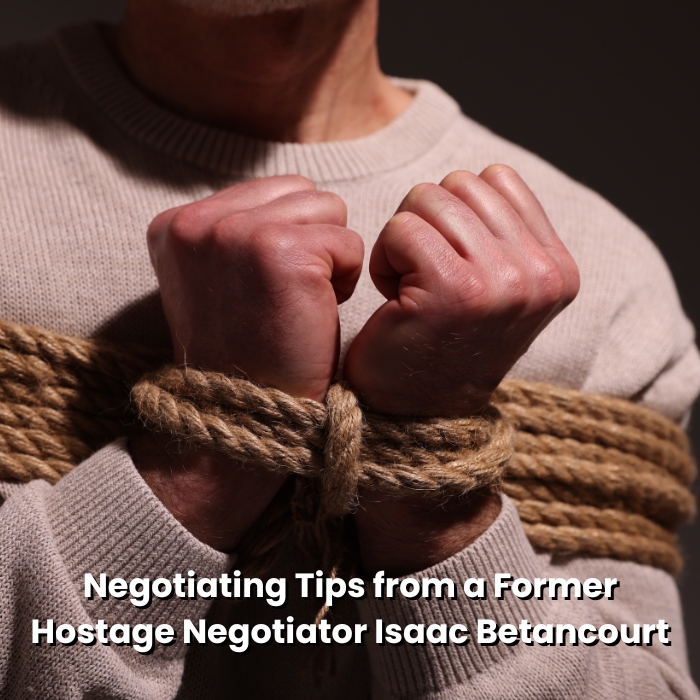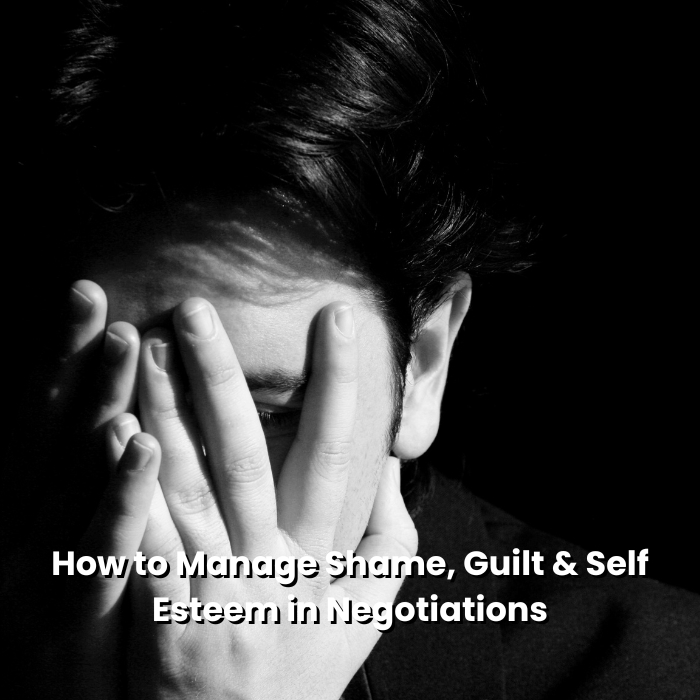
How to Improve Your Negotiations Through Improv
I’m on a mission to help people elevate their negotiation skills. Part of that process includes reframing how you look at negotiations and how you do it. To that end, I’m always on the lookout for fresh perspectives and insights. I was excited to meet Izzy Gesell, one of the first experts to use improv theatre concepts as tools for personal and organizational learning. Izzy had some interesting thoughts on how we can use improv skills to improve our negotiations and get better outcomes.
Improv is a process-focused art form where you don’t learn the outcome, but you learn how to step into different situations and be prepared for what comes towards you. Hmm. Sounds a lot like negotiating. You don’t know the outcome at the outset of the process, but you need to step into whatever situation presents and be prepared to deal with it in the most effective way possible.
Like improv, when you show up for a negotiation, some people want to be there, some people don’t; you have to influence, persuade and try to keep engagement.
In both improv and negotiation, you need to be able to lead and follow. And in both, the ‘Yes, and’ versus ‘Yes, but’ approach is critical. In other words, even when you don’t agree or you’re taken by surprise, you acknowledge and accept the other party’s position and then you can add to it (which may include giving a very different perspective). ‘Yes, and’ means we can have different opinions without making either person or party wrong, whereas ‘yes, but’ implies that one of us has to give in. ‘And’ opens doors, while ‘but’ closes them. ‘And’ opens the possibility to work together, while ‘but’ pits us against each other, typically triggering an adverse emotional response. That one word shift makes a subtle but profound difference.
This applies in our professional and personal negotiations. We assume we can get away with ‘butting’ our loved ones, yet in family situations there’s usually more triggers than in 3rd party relationships. In our professional life, we tend to be clear about our roles, whereas our emotions have been quashed down over the years in our personal relationships and our roles are much more flexible. This actually increases the need for a ‘Yes, and’ approach to get better outcomes and build better relationships.
Izzy recommends the One-Word Story as an effective exercise for both improv and negotiation. In this exercise, neither person knows where it’s going. Neither can predict or control the other person’s word. It’s key to stay present, suspend judgment and allow the process to unfold. These are all key skills for an effective negotiator to master. I’ve seen many negotiations fail because people come with attachment to a particular process or outcome. They come having pre-judged the other party and/or their position(s). In doing so, they miss gorgeous opportunities that arise, lying on the table for the taking.
The One-Word Story game allows us to practice suspending judgment or expectation and flowing with the dialogue in real time. When we notice judgment arising, it allows us to pause, take a step back and consider where it’s coming from and what we can learn from it. The idea of the exercise is to always go forward.
I invite you to notice the judgment you may even have about the exercise itself. In my interview with Izzy, he suggested we play the game together in real time on air. I agreed but commented that I expected it would be challenging to do a single word at time. I was making a judgment about something I’d never experienced. I assumed it would be harder than what I knew. In other words, I came with a story (as we all do in life) that impacted my perception and my reaction before we’d even started.
Consider how often this happens in your daily negotiations in life. How often do you show up with expectations, judgments and stories before the negotiation even begins? How does this impact on how you show up? Get curious about the stories you may tell yourself and the judgments you may bring to the negotiation table. Pay attention to the state that you show up in. Are you excited, anxious, fearful? Recognize what fears show up. Is it fear of being judged, fear of failure, fear of the unknown?
There is typically a jumbled mix of emotions when approaching a negotiation or any potentially challenging conversation. Learning to recognize the feelings that arise that don’t serve you is a valuable skill.
Likewise, as the negotiation proceeds, you’ll likely have judgments and stories about yourself, the other party, and the process. The One-Word Story exercise was interesting from that perspective as well. I found that I was judging my performance, feeling that I was too slow and disrupting the flow. My inner critic was in full bloom. No doubt you’ve experienced this in your negotiations. We judge ourselves deficient with no data to support that story. And it adversely impacts on our experience and ultimately our performance.
We often impose limitations that have no objective basis. Izzy shared a story about a workshop he led where one woman had the same reaction I had. She felt she had been too slow notwithstanding that no time limit had been imposed, and in fact, Izzy’s instructions had explicitly said there was no limit. The woman acknowledged this, saying “I heard you, but I didn’t believe you, because nothing in my life has no time pressure to it.”
As she said those words, the light bulb went off. She realized why her direct reports were so nervous when she came into the room. She realized she carries and emanates a sense of urgency around with her even when it’s not necessary. This is an important realization. Who we show up as (whether in games, in leadership roles or in negotiations) impacts the emotions, consciously and unconsciously, of the people we deal with. Increasing our awareness about this allows to get more intentional about choosing approaches that will serve to deliver better outcomes.
The exercise is a safe place to explore these concepts without defensiveness. It’s easier to be vulnerable talking about these issues in the context of a game where there are no real-world consequences. You can take more risks and experience deeper learning and insights which you can translate to profound life experiences impacting your relationships and interactions. What you take away from how you play will inform you about how you show up in real life.
For more great gems, check out the full interview with Izzy Gesell, from my Art of Feminine Negotiation podcast. Or if you prefer a visual experience, you can check out the interview on our Women On Purpose YouTube channel.
- Negotiating Tips from a Former Hostage Negotiator Isaac Betancourt - January 16, 2025
- How to Improve Your Negotiations Through Improv - January 15, 2025
- Hot Tips on How to Negotiate Balance in Your Life Part IV - January 14, 2025






